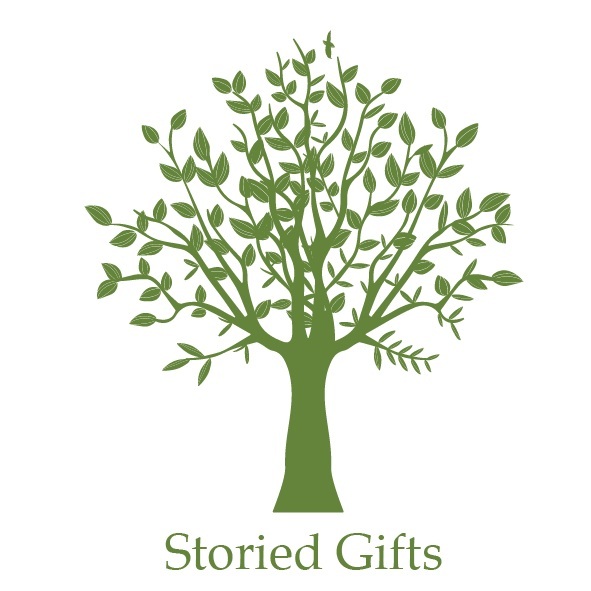Why We Gossip and How to Curb It, TDS Interview Leah Ackerman
Why We Gossip and How to Curb it, Interview with Leah Ackerman
Disclosure: There are some affiliate links below, and I may receive commissions for purchase made through the links in the post. However, these are products I highly recommend. I won’t list anything I haven’t tried and found personally useful.
Pssst. Listen. Do you want to know a secret? Do you promise not to tell? Then lean in, and I’ll tell you one. For most people, the promise of information that is “hush-hush” is intoxicating.
We want to know—almost need to know—details that seem to put us in the know or give us an edge in the world. We all gossip or have been in circles where gossip takes place. Gossip plays out in families, friends, work, even in politics and other national organizations.
At its core gossip usually comes with darker undercurrents—emotion laced with fear and judgment. We talk about difficult subjects, frightening stories, the things we can’t talk about in public or give the light of day.
Most of us associate gossip with shame—shame about the information being told, and a kind of shame for ourselves for engaging in it, if it veers malicious.
But fear not about any of the roles you’ve played in gossip. Here on The Delicious Story, we talk with Leah Ackerman, intuit, empathic, and sexual health /wellness coach, about the dynamics of gossip. She talks about us feeling more empowered to redirect our conversation.
Leah spends her time coaching women on how to feel good in their own skin. After years in the corporate world of marketing, Leah found her calling to supporting women. But as gossip is a gender-neutral phenomenon, the tools and ideas shared apply to everyone.
What is gossip and why do we do it?
Per Merriam, gossip is the action of telling a “rumor or report of an intimate nature.” Gossip travels from one person to another and group to group. It is often based on some truth. We spread news (rumor, conjecture, and true details) via gossip with the innate idea of protecting the herd.
Example: so-and-so got food poisoning from X restaurant. We are likely to believe the gossip, in part, because it comes from someone else – and if that person is someone we know, we latch onto the information.
I was ready to go generally negative on the concept of gossip, but it turns out to be one way that news informally spreads. Per the BBC article, “Do We Have Gossip All Wrong?” gossip is a societal tool.
We often share information we don’t feel that we can receive otherwise. As a study in social science, gossip is talk about someone else that involves evaluation of that person, good or bad. The news spreads person-to-person and the community is notified.
But the article does make the point that gossiping often stems from a place of feeling powerless. “…groups traditionally shut out of power and influence, may find empowerment through their own channels and interpretations of the truth.”
Could this gossip thing be the source for people readily believing conspiracy theories and misinformation generally?
When it comes to power, we equate it with more control or autonomy of self. We seek information to verify what we think, and that which we want to believe and have others believe, too.
The Four Agreements Frame of Mind
But when it comes to control, the only thing we have a crack at is influencing how we feel. The news or information aside, it is what and how we believe about ourselves and our place in the world, that really matters.
If we focus our lens to the kinds of gossip that circulate about those in our immediate circles, the activity of gossip doesn’t feel so good. Whether the information we disperse is true or not, an internal moral gut sense often shouts out a “yuck” in our ear, especially when we relate news that is unkind or none of our business.
Whether you’ve been the gossiper or the subject of it, gossip can also reveal pain and helplessness. If we don’t confront that feeling of lacking, we in fact have less power. When you look at gossip and its correlation to pain, it amounts to a whole lot of suffering going on!
Leah delves into her discovery of the informative book The Four Agreements by Don Miguel Ruiz. For her, the message of the book was all about reducing internal suffering. The agreements are listed below, but you can listen to the interview where she provides more context.
Be impeccable with your word. Speak with integrity. Say only what you mean about yourself and others. Don’t speak against yourself or gossip about others. Speak only truth and love.
Don’t take things personally. It’s not your job to manage the expectations of others, or to try and control their reactions.
Don’t make assumptions. Ask deeper questions about the meaning of what you hear. Respond with exploration such as ‘what do you mean by that?’
Always do your best. You can change (improve). Your past behavior was based on the tools and information you had at the time. You can develop new tools and information in order to proceed differently going forward. Do the best you can to grow and give others that same grace.
What to Ask Before You Engage in Gossip
· What does the information that I’m relating say about me? What about this is story is triggering for me? What do I feel about this topic?
· Forgive yourself and forgive others. Repeat often that we are each doing what we can do with the current information and tools available to us. And remember, one person’s weakness may be gossip, but we all struggle with behaviors we want to change.
· Ask more direct questions of someone sharing gossip. How does this topic make you feel? What’s going on with you. Or change the subject.
· Set boundaries of conversations for time together. If you know that gossip is a thing in the circle, make it clear you’re trying to avoid it.
What Is Your Take on Gossip?
It’s true we live in a world where gossip (and our opinions about it) travel exponentially in our social circles. However, before talking about others, it is essential you understand what you’re saying and how it impacts you, and others.
Begin with an honest personal assessment of how you feel about the information you’re speaking to or hearing about, and you’re likely to speak from a place of honesty and kindness as a result.
Leah’s contact information:
Instagram.com/Iamleahack
Facebook.com/leahAckerman
Twitter: @leahack
Leah Ackerman, 515-291-7666
Facebook: PR By Leah A
CTA: Get real and humble. We are in this together. Join the Humbly Human movement and wear it with pride.
Postscript: When things seem out of control like it feels these days, acting where we have control is a comfort. Cleaning up your stuff is within your power! If you need help getting going on organizing your home check out Get Organized Gal’s courses for support.
I used her course to organize my office, and it is in pretty good shape these days. Success in one space has lead to cleaning channels to other rooms and photos as well. Check out he courses here.
Sherry and Alexandra Borzo together in Lima, Peru
Sherry is the founder of Storied Gifts a personal publishing service of family and company histories. She and her team help clients curate and craft their stories into books. When not writing or interviewing, Sherry spends loads of time with her grandchildren and lives in Des Moines, Iowa.
STORIED GIFTS SHOP
Need a beautiful infusion of inspiration for your storied life? Please check out the Storied Gifts Shop where the theme is Words of Encouragement.
The shop is a mother and daughter venture for Sherry and Alexandra Borzo of Content In Motion. They both work to help their client's stories sing. The shop is their effort to inspire a focus on healthy minds for everyone through positive thought.
LET’S BE FRIENDS
Please like the Storied Gifts Facebook page. We offer tips and inspirations to help you tell your stories and live a storied life by harnessing your healthy mind through the power of the thoughts you choose.












